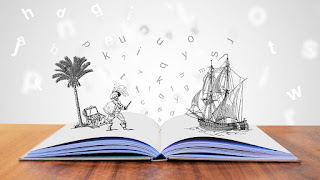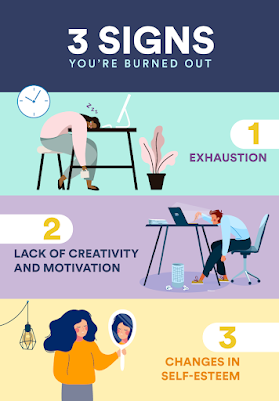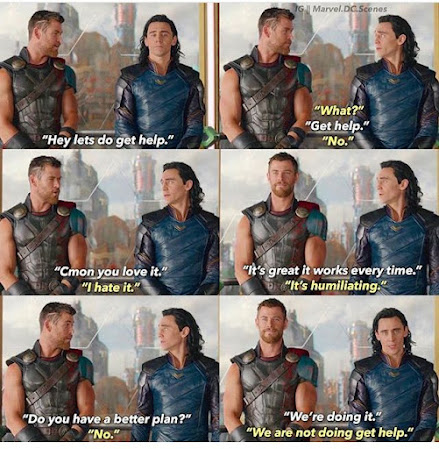I am a huge, huge, HUGE advocate of literacy for children with disabilities. For everyone, really. I know, most people will say "Of course, everyone should be literate" but I am not talking about merely being able to read a few words.
What I want for everyone is to become addicted to books! I want people to fall so deeply in love with books that they cannot wait to pick up their next novel. When I hear people say that they read a single book the entire year, my head just about explodes. Read a couple chapters every day!
So real quick about disabilities, then I will go off on another tangent about boys and reading.
Disabilities and Literacy
Being real here- my older daughter has an IQ of 41. She struggles to learn, period. And reading is a complex skill! It involved decoding and understanding what the words are saying when they are all together. But guess what? She is reading. And writing. In fact, she carries around notebooks and if people don't understand what she is saying, she will write down a few key words (usually spelled correctly!). It opens worlds of possibilities!
Benefits of Literacy:
1. It gives pleasure. It provides endless hours of being lost in a good story and letting your imagination run wild.
2. Literacy gives power. Especially for a non-verbal child, being able to write down what they want is a HUGE tool they can use!
3. It opens up more possibilities. If I can give a list of things Chelsea needs to do, that helps accommodate for her poor executive functioning skills. Heck, I use a to-do list every day because I can't keep track of everything!
Let's get down to it- how did I get Chelsea to read after the doctors told me it would never happen?
1. READ ALOUD! We read aloud for a minimum of 30 minutes every day. Some days (holidays, etc) it would be a couple hours. We read Berenstain Bears Go To School at least 1,000 times. The Very Hungry Caterpillar was more tape than pages. I had to replace several books after they were too well-loved to be read anymore.
2. For Chelsea, we never bothered with teaching phonics and the "Top 100 Sight Words". A lot of English doesn't work with phonics anyway, and the top sight words hold NO meaning for a child with an intellectual disability. Words like "the", "or", and "if" are terrible words to teach to a kid who still can't tell the difference between a duck and a chicken. So instead, we used the whole word approach. I made a list of all the words that held concrete meaning for Chelsea, and taught her those. We learned "Mommy" and "Snow White" and "puppy". And she picked up on it SO fast!
3. We model reading and keep books available. At home, we make sure that everyone has books (physical books, not digital!) accessible to them. Everyone has a bookcase in their room, and we have several in our living room. We keep a couple dozen books in the car at all times. I don't care if some of the books get torn or ripped by accident. I'd rather them be read and worn out than pristine and never opened.
4. Never give up! I started reading daily to Chelsea the day she was born, and really started teaching Chelsea to read when she was five years old. She is now close to 11 years old, and is just now really catching on. So it took years and years of persistent, consistent effort, but it is paying off big time now!
BOYS AND LITERACY
We talked about literacy and disabilities a little. Now let's transition to boys and literacy (major soapbox of mine). There is an assumption that boys don't like to read and don't enjoy school. There are a lot of problems when it comes to boys and books, particularly in America, so let's break it down:
1. School is not designed for boys. Schools are designed for girls. Biologically proven- boys and girls do not learn the same. Don't give me the PC crap- I have taught, and I stand by it- Boys and girls do NOT learn the same, and it is silly to try and teach boys the way you teach girls. Girls will sit and do flashcards. Boys will throw flashcards. As small children, girls will sit calmly and listen to books. Boys will squirm away and run off. Which brings me to point #2-
2. Boys have shorter attention spans. At least when they are young. Parents often lament that their boys won't sit and listen to long stories, and then assume the boy isn't interested in books and give up, or else hate every second of reading to their son because it isn't fitting the picture they had imagined of reading to their child.
3. To go along with #1- the majority of teachers in school, and especially elementary school, are women. Female teachers pick out books that THEY like (not bad ones! I love the ones they pick! But also- I am a girl). Boys and girls like very different books.
4. Boys don't see their dads/ men in their life read. This is a huge, huge issue. If they only see women reading, they will assume reading is just for girls.
My thoughts on solutions:
1. Boys are action-oriented and love to be competitive. When I was teaching my son his letters, I drew letters on the sidewalk in chalk and had him run and jump on them. I wrote words on cards and posted them around the house, or around the playground, and handed him a flywatter and would call out words for him to go swat. Words that HE was interested in. Because who cares about hitting the word "and" when you can hit the word "Gaston" or "sword"?
2. Get some strong male role models that show reading. This could be magazines, audio books, fiction, non-fiction... ALMOST any book out there (more on that in a second). Then have conversations about those books around the dinner table. Or while out fishing. Show them that REAL MEN read. And you will need to build up the "reading stamina" from 2 minutes of reading time until they can sit for chapters upon chapters.
3. Okay- not all literature is equal. I hate the garbage comic books/ grraphic novels/ picture books about butts and poop and farts, etc. etc. Give boys books that are engaging and thought-provoking and that prove to them that real men aren't crude. Real men are intelligent and strong and chivalrous, and don't need to stoop to reading books that encourage poor behavior. Boys will perform to the standard to which you hold them accountable. It is good to have high expectations!
4. Give them good books. This could be books about sports legends, about medieval war machines, about dinosaurs, about famous battles, about rules to games. This could be fiction books with strong protagonists that are action-packed, but for goodness sake give them books and give them often!
5. Surround them with books. I get the line "They will destroy the books if they are left out." a lot, and to that I say "Yep, it will happen. But would you rather have boys that read at the cost of a few books?" Easy answer in my mind! So put books (REAL tangible books! Not the ebook stuff- more on that in a minute too) all over. In their bedroom, in the living room. Put trivia books in the bathroom, have the car seat pockets crammed. Visit the library at least once a week for an hour and browse. Read read read read read read.
6. Stop with the devices!!! This is my other big soapbox. Screens are to candy what books are to vegetables. Of course a kid will pick video games and television over reading! Our brains are programmed to look for the digital stimulation! Kids will likewise pick ice cream over asparagus any day! And did you know that the longer kids are exposed to screens (particularly interactive screens like iPads and video games), the more it stunts their brain development and decision making and executive functioning? So yeah, a little bit of candy doesn't hurt anyone, and a little bit of screens won't hurt. I am all about family movie night on Fridays. BUT- it shouldn't be a steady diet.
7. Read aloud. It is very difficult for kids to read when they don’t have adults reading aloud to them. So read Harry Potter out loud. Listen to audio books in the car (they are trapped and can’t get away, mwahahaha), read picture books! You would be astounded how often parents stop reading to their kids when the child can read themselves. But everyone loves a good story! I am in my 30s and I like people reading to me! Reading aloud helps kids know how to read fluently with a good rhythm. Read poetry. Read non-fiction. Read fiction. If they ask a question, look it up in the encyclopedia, not just google.
And for further reading on this topic for adults, I recommend:
Boys Adrift
Boys Should be Boys
Gender Matters
Read Aloud Handbook
Glow Kids









